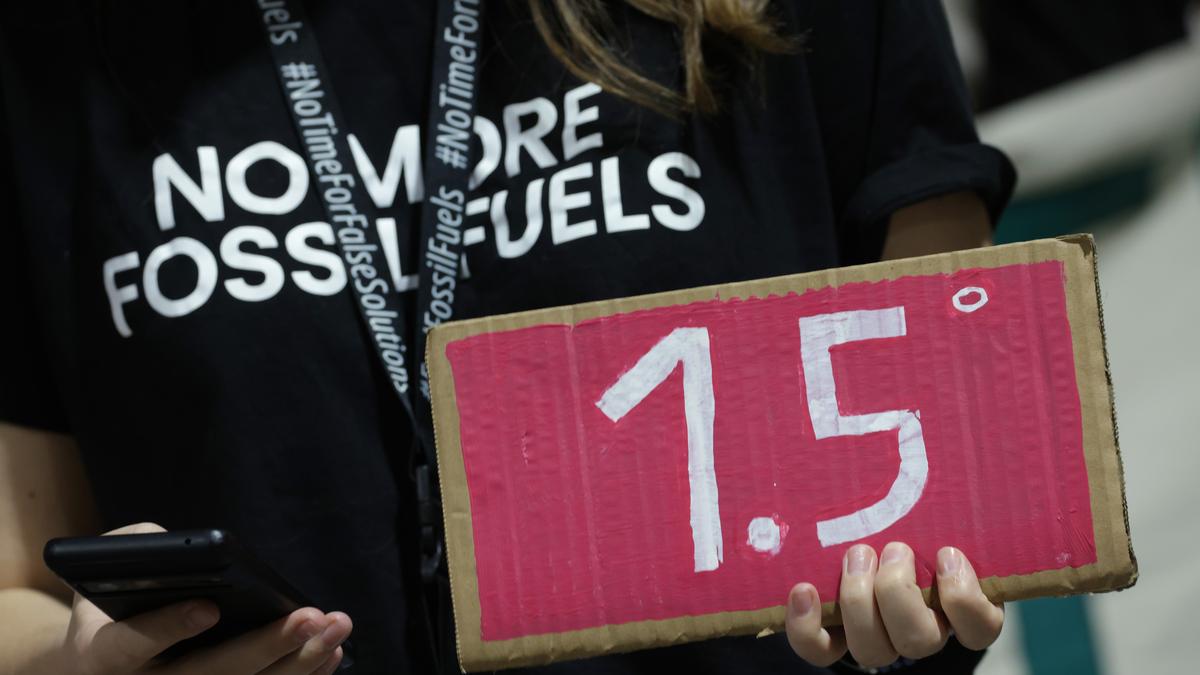Reflections on Baku’s ‘NCQG Outcome’ at COP29

- 06 Dec 2024
In News:
The recently concluded COP29 in Baku, Azerbaijan, has brought the spotlight back to climate finance, particularly in relation to the New Collective Quantified Goal (NCQG). As the global community grapples with the escalating climate crisis, the discussions and outcomes from the COP29 summit are pivotal in shaping future climate action. However, the agreed-upon financial targets, which were expected to be a step towards transformative climate justice, have sparked significant concern, particularly among developing nations.
The Need for Climate Finance: A Global Responsibility
Climate finance is essential for supporting developing countries, which bear the brunt of climate change despite contributing minimally to global emissions. The Intergovernmental Panel on Climate Change (IPCC) has stressed the need to limit global warming to 1.5°C above pre-industrial levels, yet current policies could lead to a rise of up to 3.1°C. To counter this, developing nations require financial assistance to transition to green energy, adapt to climate impacts, and implement their Nationally Determined Contributions (NDCs).
The upfront costs of green technologies, such as renewable energy, are high, and while they offer long-term savings, their initial investments remain a significant barrier. Additionally, many developing countries face fiscal constraints, making it even more difficult to adopt climate-friendly technologies without external financial support.
The Role of NCQG in Addressing Climate Finance Gaps
The NCQG, an evolution of the 2010 $100 billion annual commitment, aims to provide clarity and accountability in climate financing. Established as a framework to ensure financial resources for climate action, the NCQG should ideally focus on the evolving needs of the Global South. However, at COP29, the target agreed upon was a mere $300 billion annually by 2035, far from the $1.3 trillion that developing countries had requested. This amount falls drastically short of what is necessary to meet the ambitious climate goals and fails to represent a transformative shift in financial flows.
Key Challenges and Discontent with the Outcome
Several challenges have been raised regarding the COP29 outcome:
- Equity and Responsibility: Developed nations are expected to bear a larger share of the financial burden, in line with the principle of 'Common but Differentiated Responsibilities' (CBDR). However, the NCQG outcome bypasses this principle, offering insufficient funds for climate action in developing countries.
- Types of Finance: There is debate over whether private finance should count towards the goal. Developing countries have stressed the importance of public finance over loans, which add to their debt burdens.
- Insufficient Commitment: While the $300 billion annual pledge is a step forward, it is far from adequate. The global climate finance needs, estimated at $5 trillion to $7 trillion by 2030, require bolder commitments from developed nations.
India's Position and Domestic Efforts
At COP29, India emphasized the need for developed countries to fulfill their financial commitments, advocating for at least $1.3 trillion annually until 2030. India, despite being a developing country, has also made significant strides in climate action through domestic policies. The 2024-25 Union Budget allocated substantial funds to renewable energy projects, including ?19,100 crore for the Ministry of New and Renewable Energy. These efforts demonstrate India’s commitment to climate goals, though the financial flow remains insufficient.
Conclusion: The Road Ahead
The NCQG outcome at COP29 highlights the ongoing disparities in global climate finance commitments. While the $300 billion annual target is a step forward, it does not align with the urgency or scale required to tackle the climate crisis. To achieve a just and equitable transition to a sustainable future, future climate finance discussions must prioritize transparency, accountability, and fairness, ensuring that developed nations shoulder their fair share of the responsibility. The path forward requires unwavering international cooperation to ensure that developing countries receive the necessary support to mitigate and adapt to the impacts of climate change.
